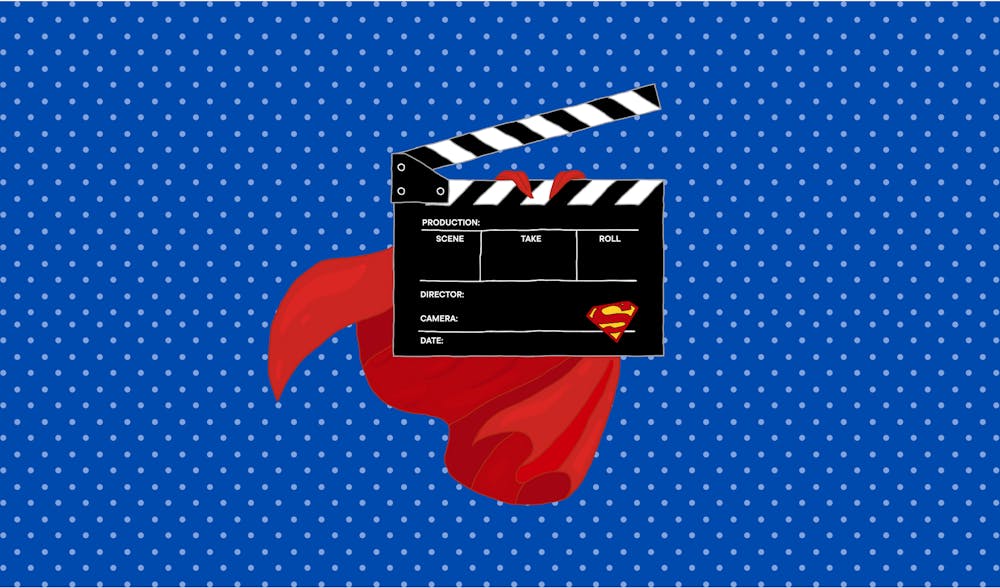From the release of “Iron Man” in 2008, through the 2019 release of “Avengers: Endgame,” the Marvel Cinematic Universe has dominated superhero media for more than 15 years. People everywhere were in love with the expansive universe that took them across time and space, exploring the stories of lovable characters, including Robert Downey Jr.’s Iron Man and Chris Evans’ Captain America. Post “Avengers: Endgame,” the MCU turned its focus to releasing TV shows on Disney+, such as “WandaVision,” “Loki” and “Ms. Marvel,” reflecting the increased trend toward streaming content over cinema attendance.
These shows, however, have been met with low viewership, poor production value and complaints from fans of bad and confusing storytelling. Viewers are additionally upset that the TV shows are now important parts of the MCU canon that must be watched to understand the films. Fans claim “superhero fatigue” to explain this lack of excitement surrounding Marvel’s post-Endgame market oversaturation that has focused largely on its TV shows.
Yet, there are still superhero stories capturing audiences outside the MCU despite this fatigue and market oversaturation. Two TV shows, “The Boys” and “Invincible,” have both become wildly popular by breaking the MCU’s mold — read below to find out how.
“The Boys”
“The Boys” Season 1 came out in July 2019 on Amazon Prime Video, and it takes a cynical stance on superheroes resulting in an incredibly gory satire. The “Supes” get high, kill, have sex with and blackmail each other and civilians, while Vought — a corrupt corporation that manages the “Supes” — maintains their celebrity status. Almost every character is evil, or at least very morally gray. The Supes are portrayed as heroic figures on superhero teams that save people from Vought-staged crime and star in multimillion-dollar movies, but beneath their polished image lies a dark reality of outright evil that mirrors real-world systems where image often triumphs over truth.
The show's rising popularity highlights a shift in audience preferences toward grittier, more subversive takes on the superhero genre. Season 4, its most recent season which was released in 2024, brought in 55 million viewers, a 21 percent increase since Season 3 released two years prior, whereas Marvel’s “Loki” Season 2 streams dropped 39 percent from Season 1 in the series’ two year time gap.
“The Boys” succeeds in its stark difference from the superheroes audiences had come to expect, abandoning snarky PG-13 one-liners for dark humor, on-the-nose political commentary and shock factor. From the first moment, the show tears down expectations about superheroes and creates a world that feels depressingly realistic. If the MCU is a swooning love letter to superheroes, “The Boys” is hate mail.
“Invincible”
“Invincible,” also on Amazon Prime Video, aired its first season in March 2021. Its third and most recent season was massively popular and garnered a lot of attention on social media. Based on comics written by Robert Kirkman in the early 2000s, “Invincible” follows Mark Grayson, whose father is the most powerful superhero on Earth and an alien. When it turns out his father, the person he admired most, had been lying to him about his identity and intentions on Earth, Mark must grapple with what it means to be a hero.
The story of “Invincible” takes a kinder view on superheroes as compared with “The Boys” — almost all of the main protagonists have super powers. It maintains the nostalgic superhero sentiment of saving lives and seeking justice, while dealing with how mismanaged power by individuals and governments can lead to violence and mass destruction. There are many instances in the show when a character with powers makes a mistake that costs the lives of innocents.
Whereas in “The Boys” almost every character is irredeemable, “Invincible’s” universe features characters that are easy to understand even if they disagree with Mark, along with the central theme that humanity and love can redeem almost anyone. Cecil Stedman, a high-ranking government official, exemplifies this as a character who often comes into conflict with Mark due to their conflicting beliefs about murder for the greater good. These dynamics pose questions about morality, forgiveness, empathy and the value of human life.
Both “Invincible” and “The Boys” benefit from targeting a more mature audience and creating a more realistic account of superheroes. They explore the realities of experiencing a world where superheroes exist, addressing government reactions and the implications of their existence on normal lives. Instead of saving us, superheros may be our doom. Refocusing its lens to explore stories based in humanity like “Invincible” and “The Boys” has the potential to bring the MCU out of a stale period of TV shows and thrust it back into the pop culture spotlight. If not, the franchise is at risk of falling deeper into a hole of irrelevance.







